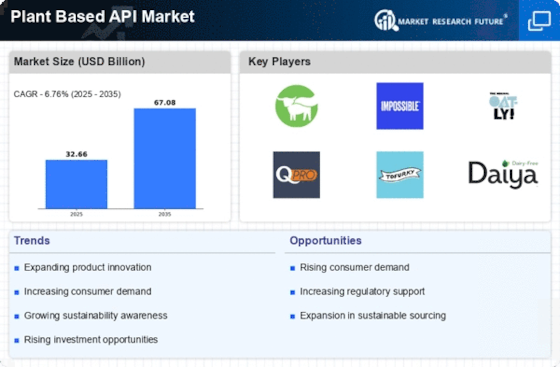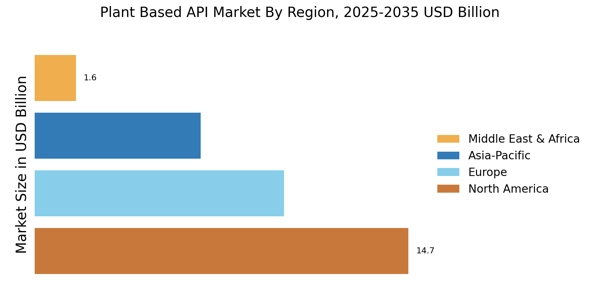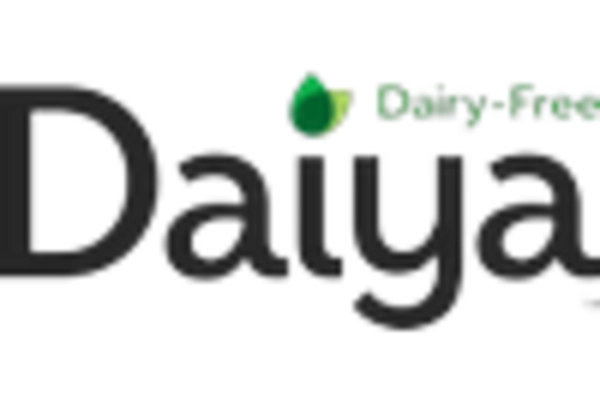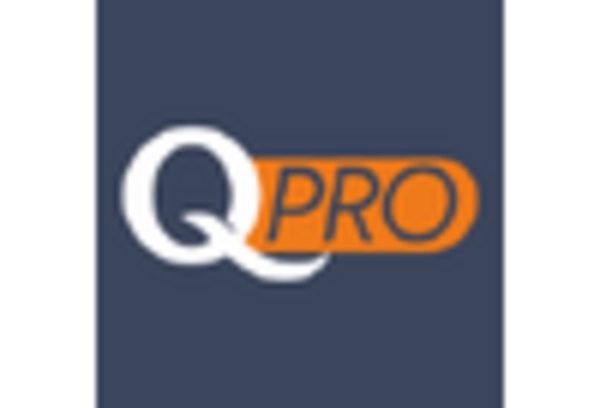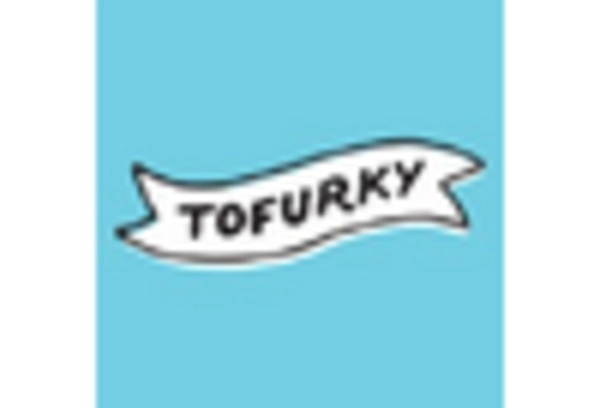Growing Awareness of Environmental Impact
The Plant Based API Market is significantly influenced by the growing awareness of the environmental impact of food production. Consumers are becoming more informed about the ecological consequences of animal agriculture, including greenhouse gas emissions and resource depletion. This awareness is driving a shift towards plant-based diets, as individuals seek to reduce their carbon footprints. Research indicates that plant-based diets can lead to a reduction in environmental impact by up to 50% compared to traditional diets. As consumers increasingly prioritize sustainability, the Plant Based API Market is likely to benefit from this trend, as more individuals and businesses seek plant-based alternatives to mitigate their environmental impact.
Increased Investment in Plant-Based Startups
The Plant Based API Market is witnessing a surge in investment directed towards plant-based startups. Venture capitalists and investors are increasingly recognizing the potential of plant-based solutions to disrupt traditional markets. This influx of capital is facilitating research and development efforts, enabling startups to innovate and bring new products to market. Recent reports indicate that investments in plant-based food companies have reached record levels, suggesting a robust interest in the sector. This financial backing is likely to accelerate the growth of the Plant Based API Market, as startups leverage funding to enhance their product offerings and expand their market reach.
Regulatory Support for Plant-Based Innovations
The Plant Based API Market benefits from an increasingly favorable regulatory environment that supports plant-based innovations. Governments and regulatory bodies are recognizing the potential of plant-based alternatives to address public health issues and environmental concerns. Initiatives aimed at reducing carbon footprints and promoting sustainable agriculture practices are gaining traction. For instance, certain regions have introduced incentives for companies that develop plant-based products, which could enhance market growth. This regulatory support not only encourages investment in the Plant Based API Market but also fosters collaboration between public and private sectors, potentially leading to accelerated advancements in plant-based technologies and applications.
Rising Consumer Demand for Plant-Based Products
The Plant Based API Market experiences a notable surge in consumer demand for plant-based products. This trend is driven by an increasing awareness of health benefits associated with plant-based diets, as well as a growing concern for environmental sustainability. According to recent data, the plant-based food sector has seen a compound annual growth rate of approximately 11% over the past few years. Consumers are increasingly seeking alternatives to traditional animal-based products, which has led to a proliferation of plant-based options across various sectors, including food, cosmetics, and pharmaceuticals. This heightened demand is likely to propel the Plant Based API Market forward, as manufacturers strive to innovate and meet the evolving preferences of health-conscious consumers.
Technological Innovations in Plant-Based Production
Technological advancements play a crucial role in shaping the Plant Based API Market. Innovations in extraction and processing techniques are enhancing the efficiency and quality of plant-based ingredients. For example, advancements in biotechnology and fermentation processes are enabling the development of novel plant-based proteins and flavors that were previously unattainable. This technological evolution is likely to expand the range of applications for plant-based APIs, making them more appealing to manufacturers across various industries. As a result, the Plant Based API Market is poised for growth, driven by the continuous improvement of production methods that meet consumer demands for quality and sustainability.


